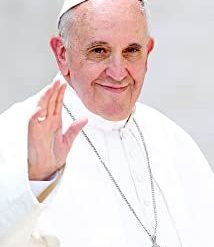Pope Francis continues his Lenten Reflection using the Exodus Story from the Old Testament as an example of a God who gifts us freedom in the face of leaders and institutions who wish to take from our freedom. As in the Exodus story we too find it difficult to leave the certainty of something that we know is not right for the promise of a better future that may not appear so assured. Pope Francis continues: In the Exodus account, there is a significant detail: it is God who sees, is moved and brings freedom; Israel does not ask for this. Pharaoh stifles dreams, blocks the view of heaven, makes it appear that this world, in which human dignity is trampled upon and authentic bonds are denied, can never change. He put everything in bondage to himself. Let us ask: Do I want a new world? Am I ready to leave behind my compromises with the old? ……..An exodus can be interrupted: how else can we explain the fact that humanity has arrived at the threshold of universal fraternity and at levels of scientific, technical, cultural, and juridical development capable of guaranteeing dignity to all, yet gropes about in the darkness of inequality and conflict. God has not grown weary of us. Let us welcome Lent as the great season in which he reminds us: “I am the Lord your God, who brought you out of the land of Egypt, out of the house of slavery” (Ex 20:2). Lent is a season of conversion, a time of freedom. Jesus himself, as we recall each year on the first Sunday of Lent, was driven into the desert by the Spirit in order to be tempted in freedom. For forty days, he will stand before us and with us: the incarnate Son. Unlike Pharaoh, God does not want subjects, but sons and daughters. The desert is the place where our freedom can mature in a personal decision not to fall back into slavery. In Lent, we find new criteria of justice and a community with which we can press forward on a road not yet taken.
